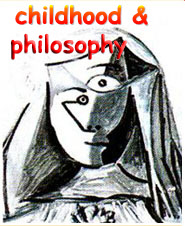scenes from an endless childhood: the tragic feeling in incêndios
DOI:
https://doi.org/10.12957/childphilo.2016.23352Keywords:
Personagem. Tempo. Narrativa.Abstract
The present paper discusses the critical universe of the theatre play Incêndios, by Wadji Mouawad, taking the actions of the main character, Nawal, as both the starting point and the point of arrival of the narrative. It punctuates the writing and memory mechanisms as triggers for thought and plot among the elements of the play. In this regard, it attains to a conceptual comprehension of the notion of time, seeking out its dimensions in the course of the drama. It encounters in Sophocles' Filoctetes a philosophical and instrumental proximity. For this reason, Incêndios and the classical work are parallel. It also raises critic social themes over and above the aesthetic and scenographic core, expanding the analysis to questions that involve contemporaneous socio-demographic problems. Finally, it thematizes notions of childhood through problematizing the “childishness” trope most clearly displayed in the work Endless Childhood (CORAZZA, 2000). It uses a conceptual analysis of this device to make considerations about two moments of childhood that are presented in the play. In a first moment, it discusses the origins of Nawal’s feelings and, in a second, the atonement of she performs in resolution of these feelings, in a quintessential evocation of the tragic condition.Downloads
Download data is not yet available.
Downloads
Published
2016-06-28
Issue
Section
dossier



